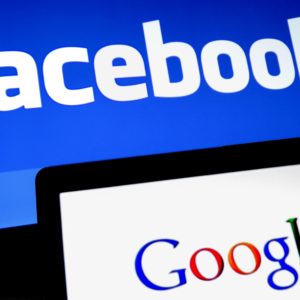Senate Democrats and Republicans seem equally eager to wield antitrust law against Big Tech, and while most economists agree the industry’s market power is too concentrated, not all are sure antitrust is the best way to handle the problem.
“Inequality and industry concentration are not themselves antitrust problems,” A. Douglas Melamed, professor of law at Stanford told the Senate Judiciary Subcommittee on Antitrust, Competition Policy and Consumer Rights.
During Tuesday’s hearing, four academics confirmed lawmakers’ convictions that the tech industry harms consumers, but offered nuanced approaches to improving competition and consumer welfare.
Melamed, for example, said “Antitrust institutions are not well suited to assessing other objectives, such as reducing inequality or the wealth or political clout of large businesses or insulating jobs from market forces. Those objectives are best served by other laws.”
Sen. Mike Lee (R-Utah), chairman of the subcommittee, said his “preferred approach” is to write better laws rather than use antitrust law against tech companies like Facebook and Google.
Joshua D. Wright, executive director of the Global Antitrust Institute at George Mason University, agreed, adding that when the Federal Trade Commission’s antitrust discretion is too broad, it is “an invitation to rent-seeking that ends up serving, not the consumers, but the economic interest of one firm or another, and allows the courts to pick winners and losers rather than encourage competition.”
Part of the problem is, tech companies like Facebook and Google redefine the meaning of the words “monopoly,” “oligopoly” and “consumer welfare.” Traditionally, antitrust law focuses on the nominal prices of goods and services as a way of determining whether one or more companies rips off consumers (by controlling the market supply and raising prices).
While consumers do not pay a nominal price to use Facebook or Google, they do pay with their data and their privacy. In exchange for their customers’ data, Facebook and Google provide customizable news and information services.
“It is a misstatement to say that antitrust is focused on price,” Melamed said. “In the Microsoft case for example, price had nothing to do with it. The reason it comes up is because it’s easier to measure it. A lot of these so-called free goods are not really free, they’re often bundled with other services and temporary. They’re sold in a barter exchange, rather than an exchange for nominal cash price.”
Facebook and Google control most sources of internet advertising revenue, thus maintaining market dominance and political influence.
Because they control the information market, some economists consider Facebook and Google to fit the traditional definition of the word “oligopoly.”
“It was reported not long ago that Google went after the New America Foundation, because the NAF was doing things that Google felt was particularly threatening,” Robert B. Reich, the chancellor’s professor of public policy at Berkeley, told senators at the hearing. “Google has quietly financed hundreds of professors at universities — like my own — that help Google defend itself against regulatory challenges to its market dominance.”
This kind of behavior, Reich said, is exactly why regulators should use antitrust law against Big Tech.
Sen. Josh Hawley (R-Mo.) also thinks that is a legitimate use of antitrust law, because by controlling the way people get their information, tech companies like Google effectively destroy the free market. “My concern, as a conservative, is the drowning out of individual voices and the ability of these behemoth corporations to extract favors from government and leverage their economic power into political power that results in cronyism and insider dealing and results in a free market that is decidedly not free, but rigged,” he said.
Sen. Richard Blumenthal (D-N.Y.) took antitrust considerations a step further.
“I think a lot of industries have gotten a free pass, like airlines,” he said. “Facebook never should have been allowed to acquire Instagram. I feel like post-merger, some of these should be challengeable, especially when the mergers are approved on conditions that are then violated and have proved anticompetitive.”
Melamed said it’s possible to challenge a merger years after it completes, but that it’s a bit like trying to “unscramble an egg,” because now you’re dealing with one integrated company, and it can be hard to determine where Instagram ends and Facebook begins.
Regardless how law enforcement and lawmakers decide to proceed, Sen. Amy Klobuchar (D-Minn.) summarized the sentiments of the committee by describing it as a bipartisan issue, recalling how Americans sought to stop anticompetitive behavior since before the nation’s founding.
“When you look at the history of our country, this started out with the Boston Tea Party — they were protesting against the monopoly of the East India Trading Company,” she said. “They saw it as a way to encourage capitalism, encourage innovation. They didn’t see it as a partisan issue. When we look at the facts of increase in concentration, there’s many studies showing increase in income inequality. [We] are seeing parallels between the old monopolies of the Gilded Age to the internet monopolies of today.”

